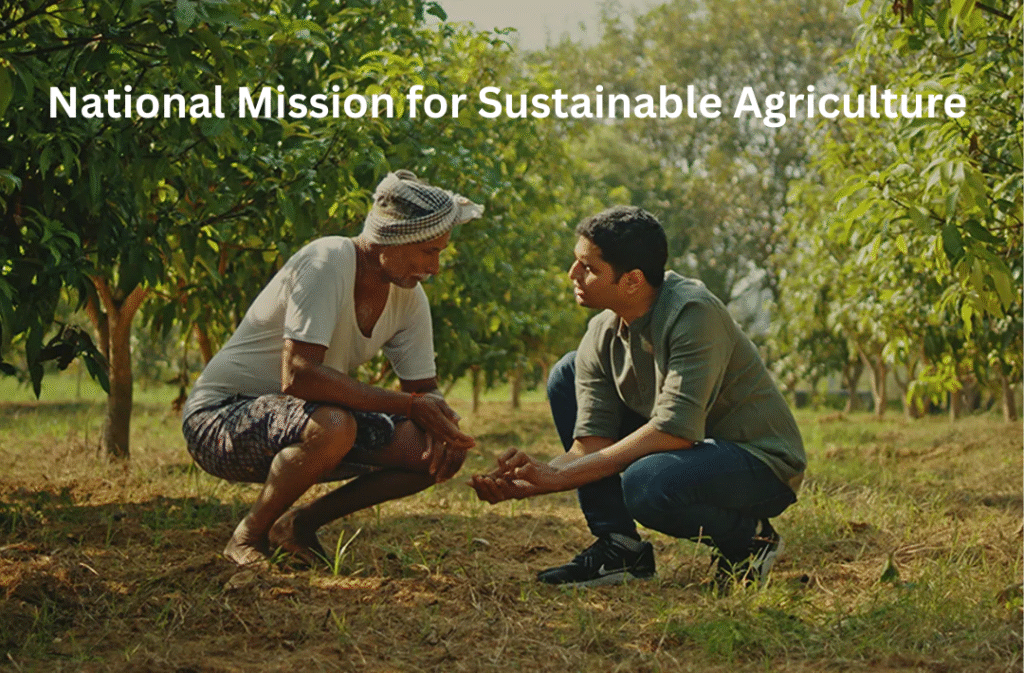
India’s agricultural sector has always been the backbone of the nation, feeding millions while also supporting livelihoods. But with climate change, water scarcity, and soil degradation becoming pressing issues, there’s a growing need for innovative and eco-friendly practices. This is where the National Mission for Sustainable Agriculture (NMSA) plays a crucial role. It not only promotes sustainable agriculture but also supports farmers during critical crop seasons, including the beloved dasheri mango season.
For mango lovers, nothing compares to the aroma and sweetness of the Dasheri Mango. Popularly known as Dasheri Aam in Hindi, this mango variety is a true gem of India’s orchards. In this article, we’ll explore how sustainable farming initiatives like the NMSA are helping preserve iconic fruits like the Dasheri mango while ensuring farmers thrive.
What is the National Mission for Sustainable Agriculture?
The National Mission for Sustainable Agriculture (NMSA) is an initiative by the Government of India under the National Action Plan on Climate Change (NAPCC). Its goal is to make farming climate-resilient, resource-efficient, and eco-friendly.
Some of its key objectives include:
- Encouraging water-use efficiency.
- Promoting organic farming and soil health.
- Reducing greenhouse gas emissions from agriculture.
- Supporting farmers with modern, sustainable techniques.
By implementing these measures, NMSA confirms crops like wheat, rice, and even seasonal fruits such as mangoes are protected against climate uncertainties.
Sustainable Agriculture: The Heart of NMSA
Sustainable agriculture means farming in a way that meets today’s needs without harming future generations’ ability to grow food. It’s about balance between productivity, environment, and profitability.
Core Practices of Sustainable Agriculture:
- Organic farming – Reducing chemical use and relying on natural fertilizers.
- Water management – Promoting drip irrigation and rainwater harvesting.
- Soil health management – Maintaining soil fertility through crop rotation and composting.
- Agroforestry – Integrating trees with crops for better biodiversity.
- Climate adaptation – Using climate-resilient seeds and practices.
These methods are especially important for fruit cultivation, including the delicate and much-awaited Dasheri Mango season.
Dasheri Mango: India’s Pride
The Dasheri Mango, often called the “King of Mangoes,” has been cherished in India for centuries. Originating from Malihabad near Lucknow, Uttar Pradesh, the Dasheri mango is famous for its sweetness, fragrance, and fiberless pulp.
- In Hindi, it’s called Dasheri Aam (दशहरी आम).
- In English, it’s known as Dasheri Mango.
Every year, during the dasheri mango season (typically June to July), the orchards of Uttar Pradesh come alive. Farmers eagerly prepare for harvesting, while mango lovers across India and abroad wait to taste this golden delight.
Connection Between Sustainable Agriculture and Dasheri Mango Season
The dasheri mango season depends heavily on favorable climate conditions, soil fertility, and water availability. Unfortunately, unpredictable rainfall, rising temperatures, and pest attacks often threaten mango production.
Here’s where the National Mission for Sustainable Agriculture makes a difference:
- Water-use efficiency confirms mango orchards get proper irrigation without wastage.
- Soil health programs improve the quality of soil, which directly impacts mango flavor and yield.
- Organic practices reduce harmful chemical residues, making the Dasheri Aam healthier and more export-friendly.
- Training programs equip farmers with knowledge about modern, eco-friendly techniques.
By blending tradition with innovation, NMSA helps preserve the legacy of the Dasheri Mango in English and Hindi markets alike.
Dasheri Aam in Hindi Culture
In Hindi-speaking regions, the Dasheri Aam (दशहरी आम) is more than just a fruit—it’s a celebration of summer. Families gather to enjoy mango feasts, while children eagerly wait for chilled mango slices and aamras (mango pulp).
The cultural importance of Dasheri mangoes can be seen in:
- Festivals and fairs held during the mango season.
- Traditional recipes, such as mango pickle, chutney, and desserts.
- Exports, where Dasheri mangoes carry India’s rich agricultural identity to global markets.
Dasheri Mango in English Context
When we talk about Dasheri Mango in English, it resonates with international fruit lovers who know India as the land of mangoes. This particular variety is exported to countries like the USA, UAE, and UK, making it a global ambassador of Indian agriculture.
Thanks to sustainable farming initiatives, the quality of exported Dasheri mangoes has improved, ensuring longer shelf life and better taste retention.
Benefits of Supporting Sustainable Mango Farming
Promoting sustainable agriculture for mango cultivation provides multiple benefits:
- Environmental benefits – Less water waste, reduced chemical usage, and healthier soil.
- Economic stability – Farmers earn more from organic mango exports.
- Health benefits – Consumers get cleaner, chemical-free fruits.
- Cultural preservation – Mangoes like Dasheri Aam in Hindi remain part of India’s food heritage.
- Global recognition – The Dasheri Mango in English world strengthens India’s reputation as the mango capital of the world.
Challenges Ahead
While progress is visible, challenges remain:
- Farmers still face financial difficulties in adopting new technologies.
- Climate change continues to threaten the dasheri mango season.
- Lack of awareness in rural areas slows down sustainable farming adoption.
Addressing these challenges requires strong government support, farmer training, and consumer awareness.
Final Opinion
The National Mission for Sustainable Agriculture is more than just a government program—it’s a lifeline for farmers and a safeguard for India’s future food security. By promoting sustainable agriculture, it ensures that seasonal treasures like the Dasheri Mango continue to thrive despite environmental challenges.
Whether you call it Dasheri Aam in Hindi (दशहरी आम) or Dasheri Mango in English, this fruit is a symbol of India’s agricultural pride. Supporting sustainable practices means not only enjoying the sweetness of mangoes today but also preserving them for generations to come.